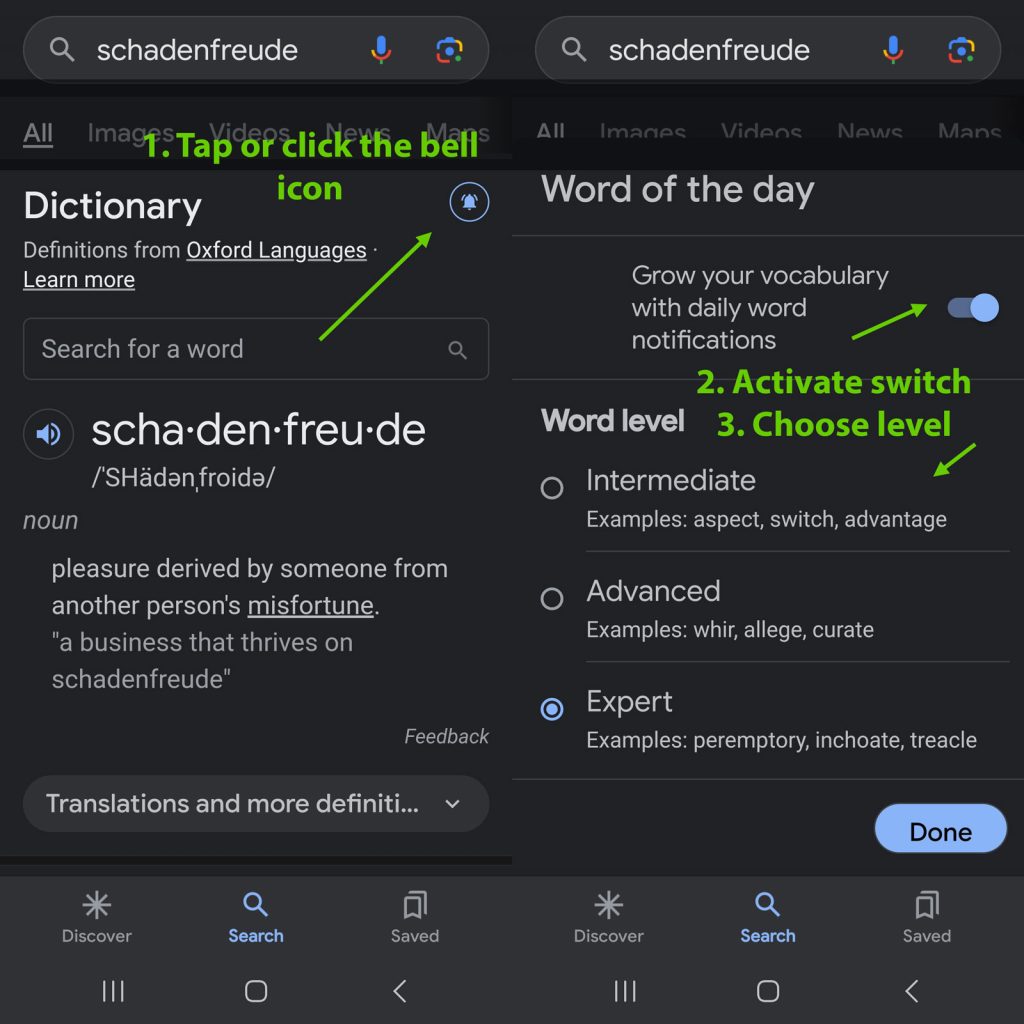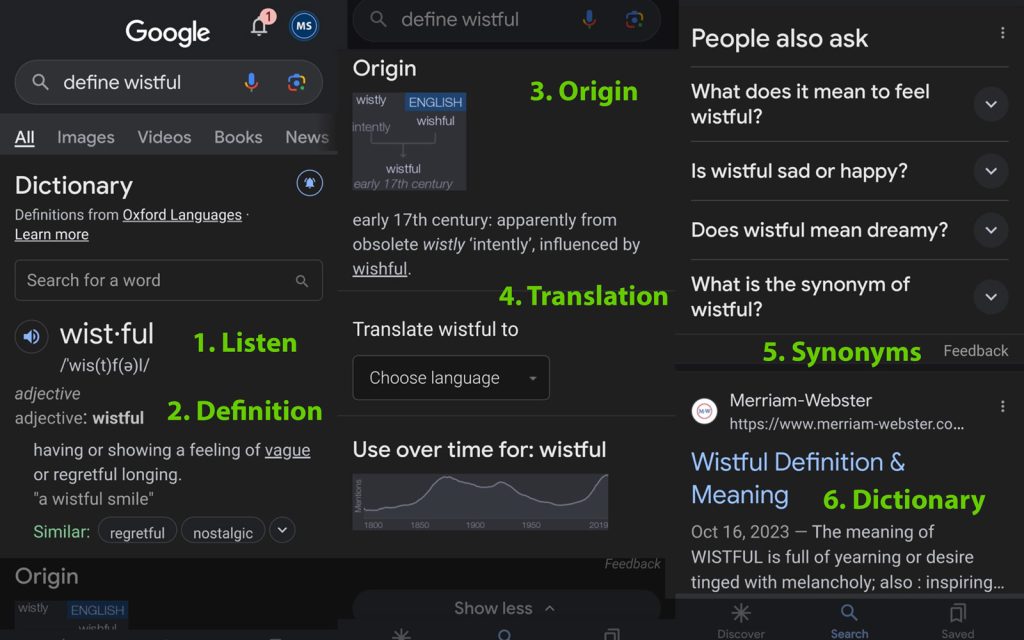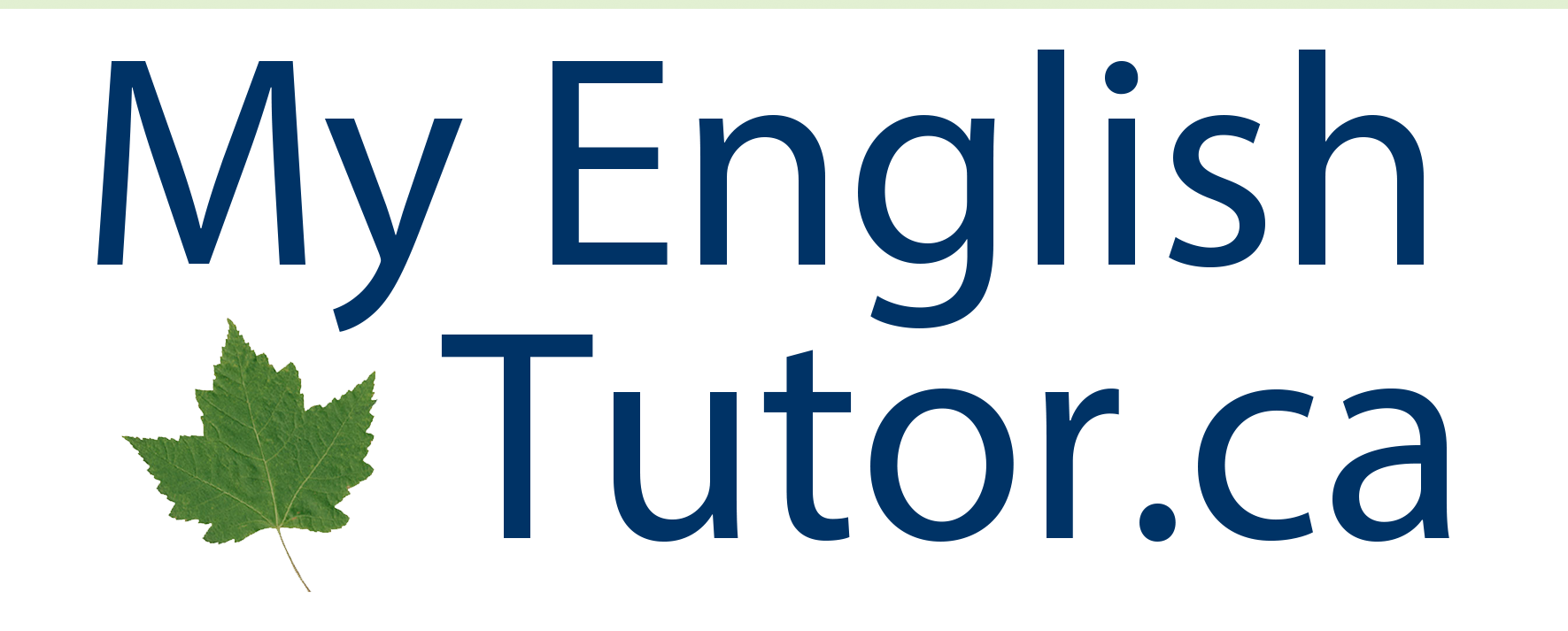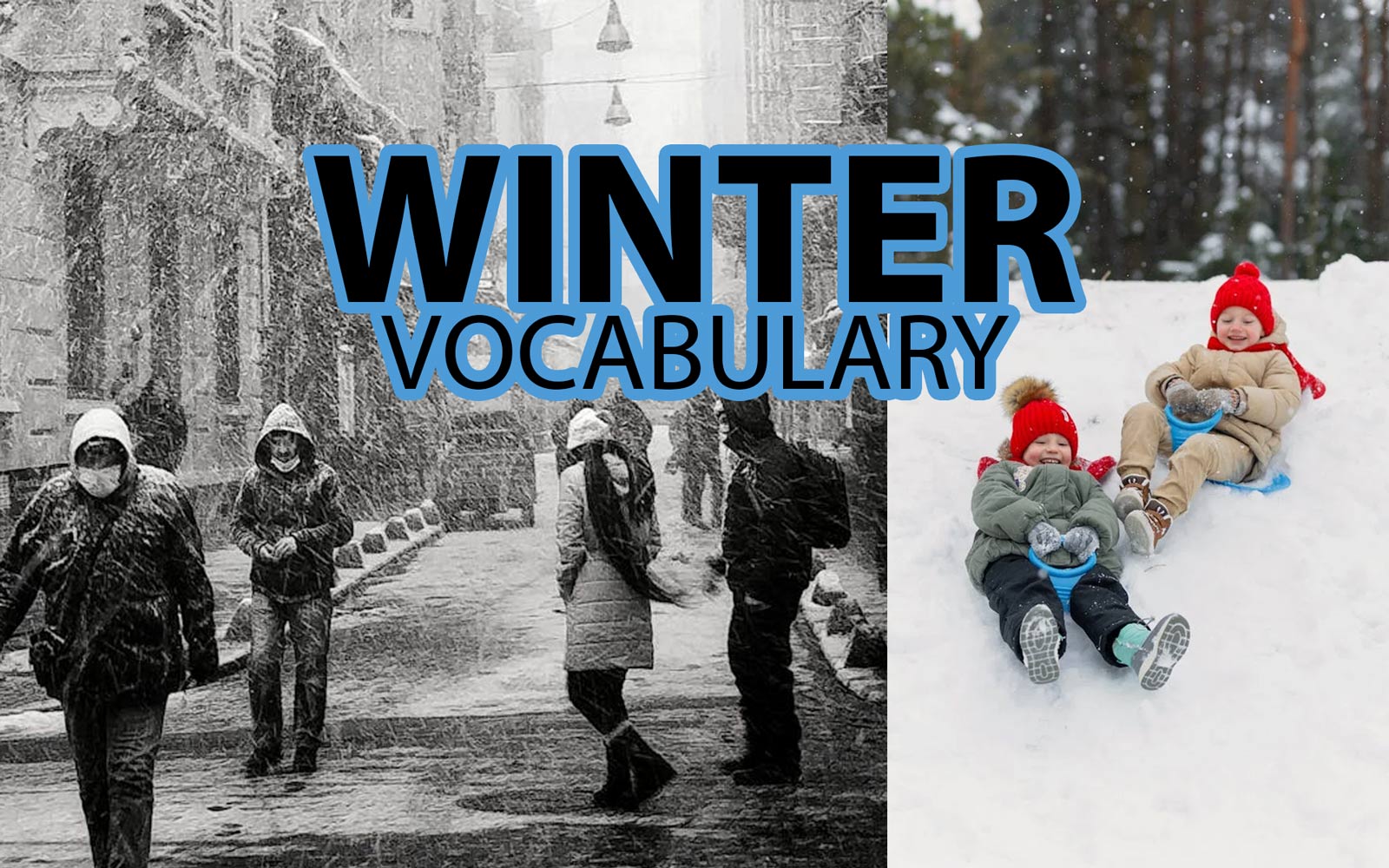Are you interested in growing your vocabulary and keeping sharp? Daily bite-sized learning activities like word games and sudoku can play a positive role. With that in mind let’s look at a quick way to study new vocabulary on a daily basis.
I’d like to introduce:
- Google Word of the Day
About Google Vocabulary aka Word of the Day
I was looking up the word “schadenfreude” and noticed this little bell icon at top right. So I clicked it and was promoted t choose a level by which I’d get a new word each day.
Interestingly the choices range from intermediate to expert. Nothing for beginners here. For most of my students starting with intermediate would make the most sense.
Here’s the steps I followed to set this up:

3 steps and you are now subscribing to word of the day. Easy. Obviously you can unsubscribe or change the subscription if you like.
What other words am I getting through this subscription? Here’s a sampling:
Example: Wistful
Though I’m subscribed to expert level there are some practical words that pop through. I know what “wistful means but it’s the kind of word that deserves a refresh and some revisiting once in a while. Do you know this adjective? It means “having or showing a feeling of vague or regretful longing.” Fantastic word that is very useful for talking about feelings and events in the past.
When do we say “wistful?” What does it mean? Check out the highlights that I’ve identified here. There are 6 important areas to consider.
Let’s look at the items
- Listen to the audio
- Read the definition
- Consider the word’s origin
- Look at translations
- Think about and look up synonyms
- Dictionary links

A lot to consider but you really need to think about all aspects of a word to be able to incorporate it into your vocabulary. What does it mean? How does it sound? What is the origin? How does it translate into your language? Are there any related words or synonyms?
Note: be careful about the translation and synonyms. We have all discovered words that we think we understand the complete meaning only to find out later the word was slightly different than our initial thought. Definitely look up multiple meanings using the dictionary. It can be Oxford or Merriam-Webster (as in this case). Most dictionaries will be useful and show you multiple meanings in various parts of speech from non to verb to adverb and adjective. (A word of caution to avoid informal or slang dictionaries like the Urban dictionary – they may be fun but less practical).
Final Thoughts
Learning new words and reinforcing old ones is a faourite pastime of mine. I’ve always loved words, language and putting it all together in writing and speech. Of course I’m a native speaker, but whether you’re an English native or ESL (English as a Second Language) student, learning and practising vocabulary is absolutely paramount to growing your communication skills.
What do you think? Do you subscribe to the Word of the Day service by Google? What do you think of it? What other ways do you acquire new vocabulary and practice it? Let me know what you think.
Students please drop me a line via email and we can chat about this.
Links and Resources
You may be interested in Google’s blog post announcement for this service.
Thanks for reading. I am a teacher from Toronto, Canada. I can help you with your English and communication for personal or professional purposes. Contact me to ask about my rates and availability.
I have been teaching ESL, English, and design communications for 20+ years. If you would like to ask me about my experience or have any other questions please feel free to get in touch.
About Teacher Mike Simpson
Thanks for reading. I am a teacher from Toronto, Canada. I can help you with your English and communication for personal or professional purposes. Contact me to ask about my rates and availability.
I have been teaching ESL, English, and design communications for 20+ years. If you would like to ask me about my experience or have any other questions please feel free to get in touch.








